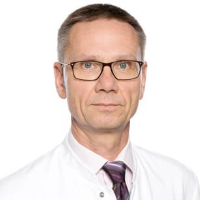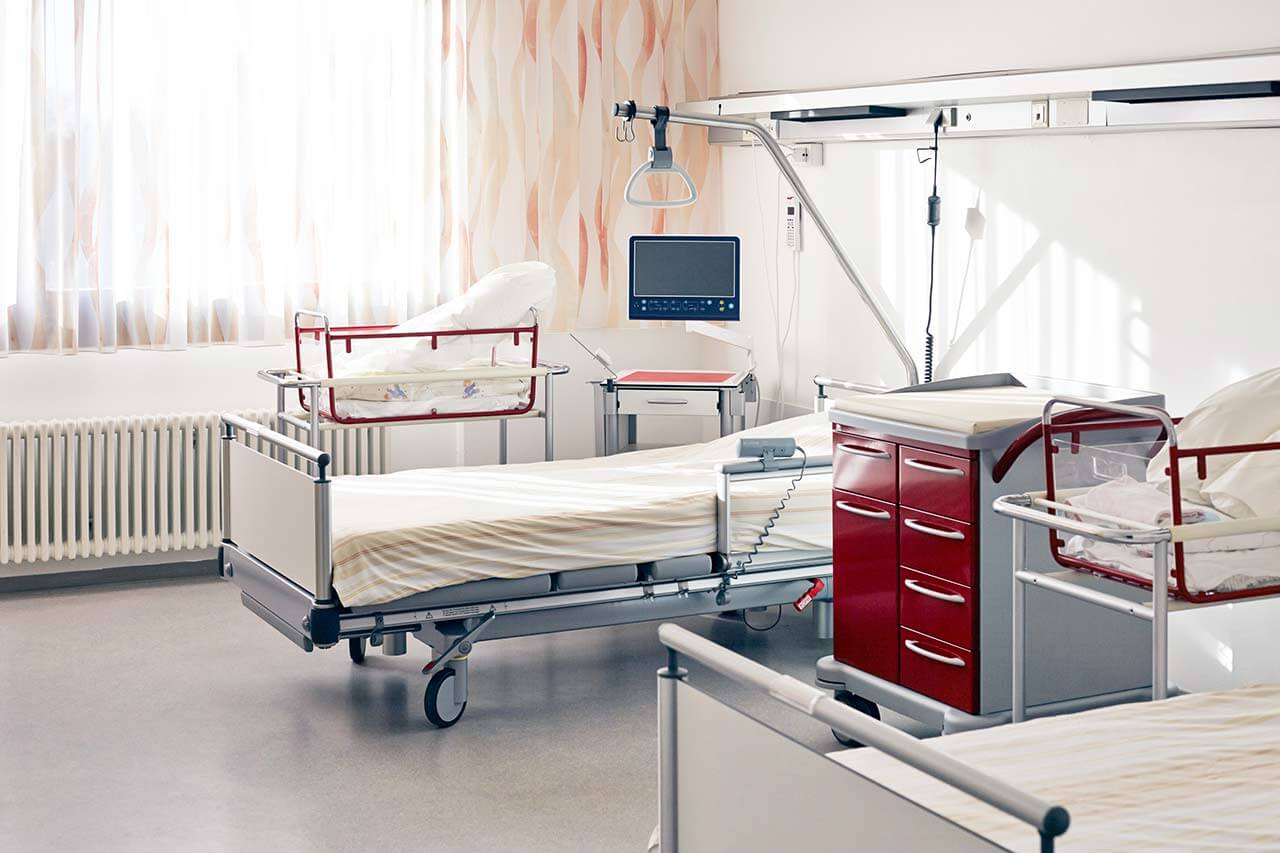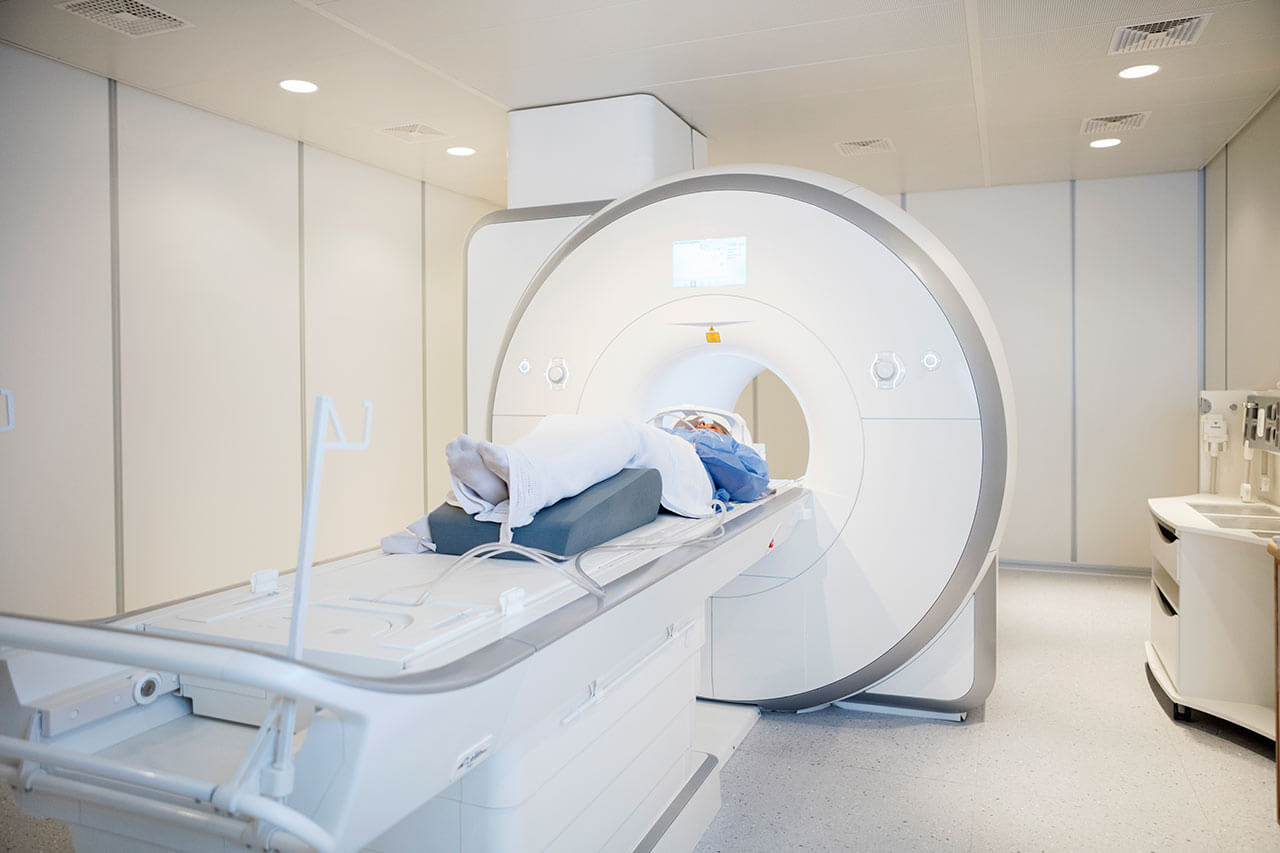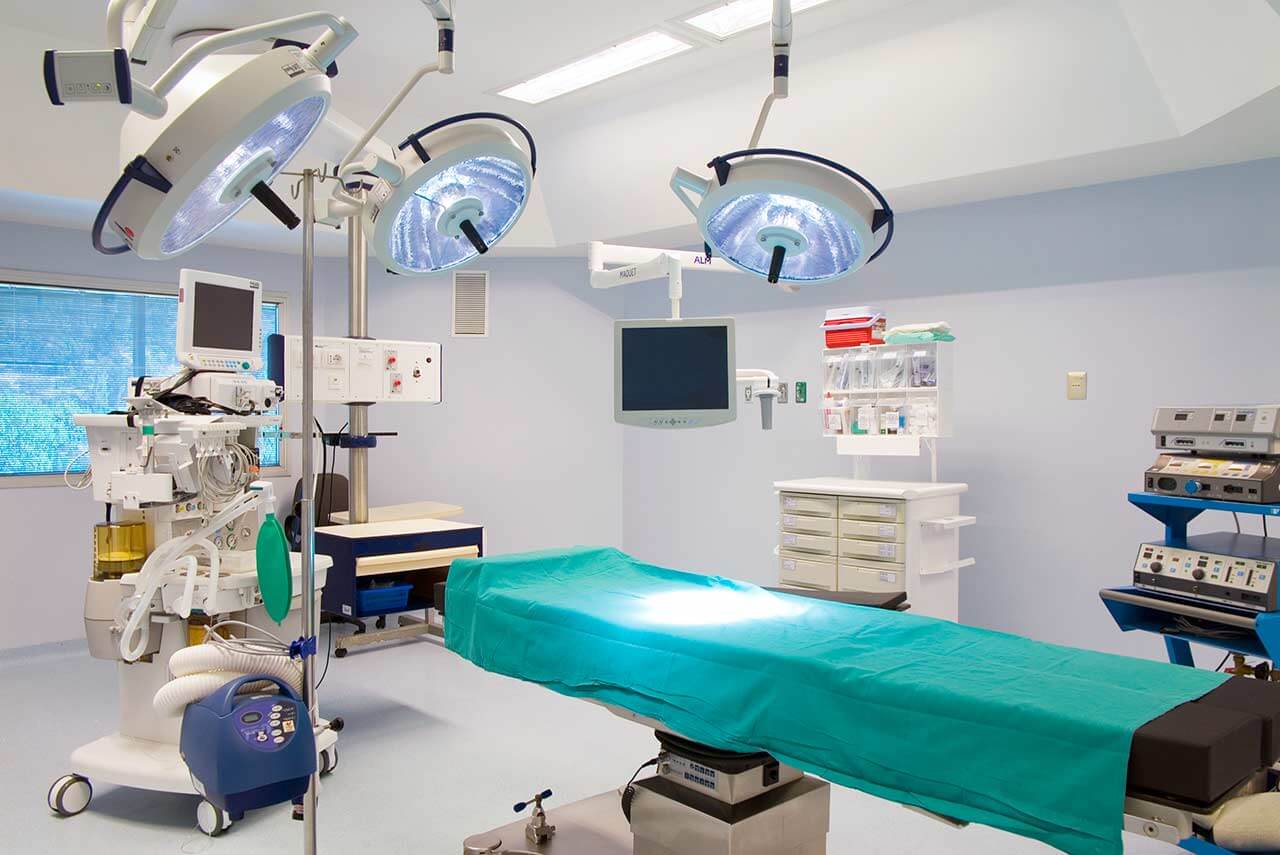
The program includes:
- Initial presentation in the clinic
- clinical history taking
- general clinical examination
- laboratory tests:
- complete blood count
- clinical urine test
- kidney function test (creatinine, urea)
- blood coagulation analysis (aPTT, PT, INR)
- inflammaion indicators (CRP, ESR)
- tumor markers
- pelvic ultrasound
- CT scan (on indication 650 €)
- MRI scan (on indication 1200 €)
- cystoscopy
- biopsy with histological examination (on indication 2000 €)
- nursing services
- consultation of related specialists
- consultation of the chief physician and all leading experts
- development of individual treatment plan
- written statement
Required documents
- Medical records
- MRI/CT scan/US of the pelvis (not older than 3 months)
- Biopsy results (if available)
Service
You may also book:
 BookingHealth Price from:
BookingHealth Price from:
About the department
The Department of Adult and Pediatric Urology, Andrology at the Hospital Cologne-Holweide provides the full range of services for the diagnostics and treatment of urologic diseases. The medical facility specializes in conservative and surgical treatment of diseases of the kidneys, ureters, bladder, urethra, and male reproductive system. An important area of competence of the department's team of urologists is the treatment of kidney cancer, bladder cancer, prostate cancer, and testicular cancer. The department has two advanced operating rooms: one is adapted for complex open surgery, and the other has equipment for transurethral and endoscopic interventions. Many minor surgical procedures are performed on an outpatient basis without a mandatory hospital stay. Patients are also offered the services of a qualified team of andrologists who are responsible for providing medical care to men suffering from infertility, erectile dysfunction, hypogonadism, and other pathologies. The department's doctors are experienced specialists who always strive to find an optimal solution to health problems and provide patients with high-quality treatment. The department is headed by PD Dr. med. Joachim Leissner.
Prostate cancer treatment is one of the main areas of specialization for the department's urologists. Prostate cancer is a widely prevalent disease among men. The danger of this pathology lies in the fact that it is often asymptomatic in the early stages. By the time the tumor becomes symptomatic, it often spreads beyond the prostate capsule, significantly increasing the risk of lymph node involvement and metastasis. The medical team has an excellent diagnostic base for comprehensive diagnostics for suspected prostate cancer, the results of which largely determine the effectiveness of the upcoming treatment. The gold standard for treating localized prostate cancer is a radical prostatectomy, which involves total removal of the malignant tumor along with the affected organ. The operation is performed using minimally invasive laparoscopic techniques. Depending on the particular clinical case, surgical treatment may be supplemented with conservative therapies such as chemotherapy, radiation therapy (external beam radiation therapy or brachytherapy), hormone therapy, targeted therapy, immunotherapy, etc.
The department's medical team also regularly admits patients with kidney cancer. At the diagnostic stage, kidney ultrasound and laboratory blood and urine tests are performed if cancer is suspected. X-ray diagnostics, CT, MRI, PET-CT, and a kidney biopsy may also be required to clarify the diagnosis. If the diagnosis is confirmed, the specialists develop an individual treatment regimen, taking into account the stage of the disease, the patient's general health condition, their age, and other factors. The basis of kidney cancer treatment is almost always surgical removal of the malignant neoplasm. In the advanced stages of cancer, total removal of the affected kidney, known as a nephrectomy, may be required. Such surgical interventions are performed in the department using minimally invasive techniques. During treatment, the specialists also use conservative methods, including immunotherapy and targeted therapy, while chemotherapy and radiation therapy are rarely used.
The department's urologists have excellent professional skills in the treatment of kidney stone disease. This pathology involves the formation of calculi in the kidneys, ureters, and/or bladder. The pathological process usually leads to severe symptoms such as renal colic, painful urination, increased body temperature, nausea, vomiting, and increased fatigue. The department's doctors recommend patients not delay treatment because kidney stone disease may provoke severe complications, including the development of upper urinary tract infections, kidney failure, and sepsis. The department's therapeutic options in this area include extracorporeal shockwave lithotripsy (non-contact stone crushing) and endoscopic stone removal interventions. Whenever possible, the department's specialists prefer the first treatment option, but it is an endoscopic intervention that can help achieve good results when dealing with large stones.
The department's andrologists conduct comprehensive diagnostics and treatment of diseases of the male reproductive system. The doctors in this specialization focus on patients with infertility, erectile dysfunction, and hypogonadism. The main method of confirming male infertility is a spermogram, which assesses the quantity and quality of sperm cells as well as their motility. In many cases, the specialists only resort to the treatment of urologic pathology that causes infertility. The last-line treatment is intracytoplasmic sperm injection (ICSI), which refers to assisted reproductive technologies. As for erectile dysfunction, the most common treatment is a combination of psychotherapy and drug therapy. In addition, erectile dysfunction can be a complication of other diseases, such as arterial hypertension or diabetes mellitus. In such cases, the problem can be eliminated after compensation for the underlying disease.
The department's main clinical activities include:
- Urology
- Diagnostics and treatment of urologic cancers
- Prostate cancer
- Kidney cancer
- Bladder cancer
- Testicular cancer
- Diagnostics and treatment of benign urologic diseases
- Benign prostatic hyperplasia
- Prostatitis
- Kidney stone disease
- Urinary incontinence
- Cystitis
- Pyelonephritis
- Urethritis
- Phimosis
- Varicocele
- Diagnostics and treatment of urologic diseases in children
- Recurrent urinary tract infections
- Vesicoureteral reflux
- Phimosis
- Varicocele
- Testicular torsion
- Cryptorchidism
- Hypospadias
- Phimosis
- Congenital posterior urethral valves
- Enuresis
- Diagnostics and treatment of urologic cancers
- Andrology
- Male infertility
- Erectile dysfunction
- Male hypogonadism
- Other medical services
Curriculum vitae
Higher Education and Professional Career
- 1985 - 1992 Medical studies at the Johannes Gutenberg University Mainz.
- 1992 - 1999 Research Fellow, Department of Urology at the University Hospital Mainz.
- 2000 - 2003 Managing Senior Physician, Department of Urology, University Hospital Magdeburg.
- 2002 Habilitation, Otto von Guericke University Magdeburg. Subject: "Prognostic factors for bladder cancer recurrence during lymph node dissection".
- 2003 - 2005 Managing Senior Physician, Department of Urology at the University Hospital Bonn.
- Since 2005 Head Physician, Department of Adult and Pediatric Urology, Andrology at the Hospital Cologne-Holweide.
Clinical Focuses
- Treatment of urologic diseases in children.
- Treatment of andrologic diseases.
- Radical surgical removal of tumors in the urinary system and male reproductive system.
- Reconstructive urologic surgery.
Research Interests
- Bladder cancer surgery.
- Methods of gene transfer (gene therapy) for urologic tumors.
- Drug therapy for prostate adenoma.
- Study of oncogenes and receptors in urologic tumors.
Photo of the doctor: (c) Krankenhaus Köln-Holweide
About hospital
According to the reputable Focus magazine, the Hospital Cologne-Holweide ranks among the top medical centers in North Rhine-Westphalia!
The medical complex is an academic hospital of the University of Cologne, providing patients with high-quality healthcare based on the latest achievements in university medicine. The hospital admits patients with various diseases, including cancer, diseases of the hematopoietic system, urinary system, gastrointestinal tract, ENT organs, etc. The hospital is known for having one of the largest Departments of Obstetrics in Germany, where more than 1,800 babies are born every year. The health facility also houses the specialized Breast Cancer Center and the Colon Cancer Center, whose treatment success rates are consistently high. The hospital has advanced technical resources and highly qualified staff to provide patients with effective medical care in the areas of its specialization.
The hospital has a total of 465 beds. The medical facility annually admits about 20,500 inpatients and more than 63,900 outpatients for diagnostics and treatment. The hospital provides comfortable conditions and modern infrastructure to meet the needs and wishes of patients. The medical team at the hospital prefers a multidisciplinary approach to medical care, which is particularly valuable in treating complex conditions such as cancer.
In 2009, the hospital was successfully certified by "High-Quality Management of Acute Pain Syndrome" TÜV Rheinland Group in gynecology, surgery, urology, otorhinolaryngology, and anesthesiology. In addition, the hospital became the first emergency medical facility for adults in Cologne to be KTQ® (Cooperation for Transparency and Quality in Healthcare) certified.
The specialists at the hospital always strive to provide each patient with high-quality medical care in a pleasant atmosphere. Doctors are open to dialog, gladly answer all questions that patients are interested in, and provide moral support throughout the therapeutic process.
Photo: (с) depositphotos
Accommodation in hospital
Patients rooms
The patients of the Hospital Cologne-Holweide live in comfortable single and double rooms designed in light colors. Each patient room has an ensuite bathroom with a shower and a toilet. The furnishings of a standard patient room include an automatically adjustable bed with an orthopedic mattress, a bedside table, a wardrobe for personal belongings, a table and chairs for receiving visitors, and a TV with international channels. Wi-Fi is also available in the patient rooms.
The patients can stay in enhanced-comfort rooms, if desired. Such rooms are more spacious and additionally equipped with a safe, a mini-fridge, and upholstered furniture.
Meals and Menus
The patients are offered three tasty and healthy meals a day: breakfast, lunch, and dinner. Breakfast and dinner are served as buffets, and for lunch, there is a set of three menus to choose from.
If, for some reason, you do not eat all the foods, you will be offered an individual menu. Please inform the medical staff about your dietary preferences prior to treatment.
Further details
Standard rooms include:
Religion
A worship service is held in the chapel at the hospital every Sunday. There is also a prayer room at the hospital where one can pray in private.
The services of representatives of other religions are available upon request.
Accompanying person
Your accompanying person may stay with you in your patient room or at the hotel of your choice during the inpatient program.
Hotel
You may stay at the hotel of your choice during the outpatient program. Our managers will support you for selecting the best option.





